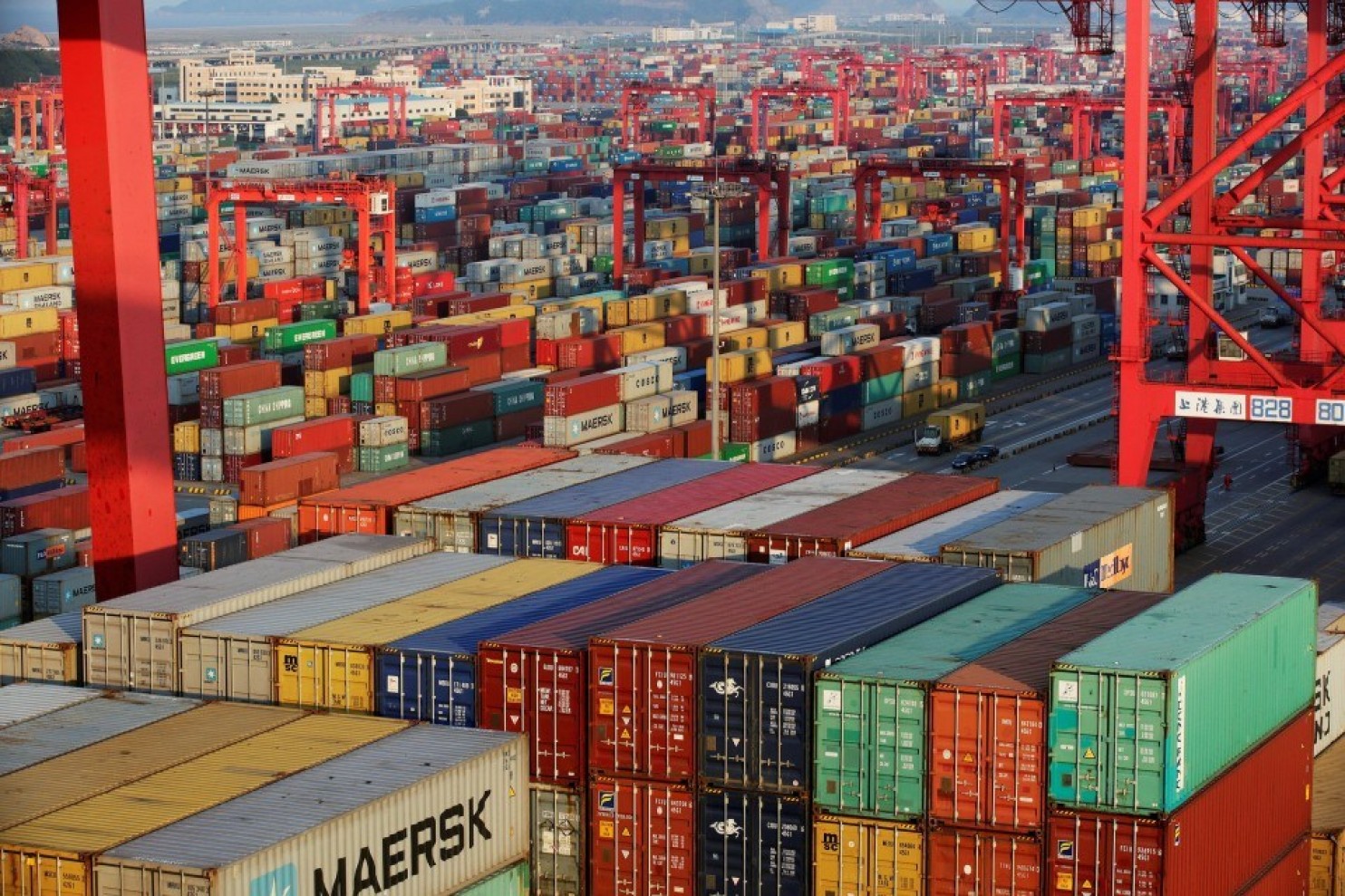Media Report

- CNN reports: "China and the United States are offering different accounts of what has been discussed in high-stakes talks this week to avoid a trade war. US officials on Thursday told CNN that Beijing had proposed boosting Chinese purchases of American goods by around $200 billion in an attempt to reduce the massive trade imbalance between the two countries. But at a regular news briefing in Beijing on Friday, Chinese Foreign Ministry spokesman Lu Kang denied such an offer had been made.... Top officials from the two countries held talks in Washington on Thursday aimed at finding a way out of their bitter trade dispute. The United States and China have threatened in recent months to slap tariffs on tens of billions of dollars of each other's products."
- The New York Times comments: "Did the president of the United States just betray the nation's security in return for a bribe from the Chinese government? Don't say that this suggestion is ridiculous: Given everything we know about Donald Trump, it's well within the bounds of possibility, even plausibility... Step back from the details and consider the general picture. High officials have the power to reward or punish both businesses and other governments, so that undue influence is always a problem, even if it takes the form of campaign contributions or indirect financial rewards via the revolving door... And the problem of undue influence is especially severe when it comes to authoritarian foreign governments. Democracies have ethical rules of their own."
- Reuters reports: "North Korea has declined to accept a list of South Korean journalists hoping to observe the closure of its nuclear test site... raising new questions about the North's commitment to reducing tension. North Korea had invited a limited number of journalists from South Korea and other countries to witness what it said will be the closing of its only nuclear weapons test site at Punggye-ri next week. The North Korean offer to scrap the test site has been seen as major concession in months of easing tension between it, on the one hand, and South Korea and the United States on the other. But the remarkable progress appears to have been checked in recent days with North Korea raising doubts about an unprecedented June 12 summit in Singapore between leader Kim Jong Un and U.S. President Donald Trump, and calling off talks with the South... China's top diplomat, Wang Yi, said the measures North Korea has taken to ease tension should be acknowledged, and all other parties, especially the United States, should cherish the opportunity for peace."
Calendar
- 2018-05-17 Trump: I 'doubt' China trade negotiations will succeed
- 2018-05-16 Just about everything is odd about Trump’s support of Chinese firm ZTE
- 2018-05-15 Trump, China, ZTE and the art of the deal
- 2018-05-14 Trump throws ZTE curveball as big week for US-China trade begins
- 2018-05-13 Trump orders U-turn over sanctions against Chinese telecom group
- 2018-05-11 How China is working hard to be less reliant on US farmers
- 2018-05-10 China Draws Up a Shopping List of American Goods to Avoid Trade War
- 2018-05-09 China is the big wild card in Trump's Iran decision
- 2018-05-08 Kim’s Second Surprise Visit to China Heightens Diplomatic Drama
- 2018-05-07 China's trade imbalance with U.S. a long-term problem, says central bank governor
News
- The Wall Street Journal Legislation to Curb Chinese Deals Moves Through Congress
- Financial Times China sees rise in mainland companies defaulting on bonds
- Politico White House optimistic on chances for China trade deal
- CNN Did China make a $200 billion trade offer to the US? Beijing says no
- Reuters North Korea 'declines' South Korea media for nuclear site event; China urges 'stability'
- The New York Times China, Signaling Thaw With U.S. Over Trade, Approves Toshiba Microchip Deal
- CNN At the height of his power, China's Xi Jinping moves to embrace Marxism
- The New York Times Cleared of Spying for China, She Still Doesn't Have Her Job Back
- The Wall Street Journal China Won't Dominate Lithium Forever
- Bloomberg Chinese Bank Offered Clients Chance to Dine With Trump for $150,000
- BBC News China drops sanctions probe into US sorghum imports
Commentary
- The New York Times Did China Just Bribe Trump to Undermine National Security?
- Financial Times China offers protection amid the dance of the trillions
- CNBC China's reported offer to slash trade deficit with US is about politics: economist
- NPR Small Business Owner Fears U.S.-China Trade War Will Destroy Her Company
- SupChina 'Africa Week' In Beijing Aims To Dismantle Africa-China Clichés
- Forbes What Challenges Lie Ahead For China's Internet Giants And Their Healthtech Startups?
- NPR California Winemakers Nervous About U.S.-China Trade Talks
- Forbes What Chinese Consumers Want From Western Retailers
- Space.com China Launching Relay Satellite Toward Moon's Far Side Sunday
